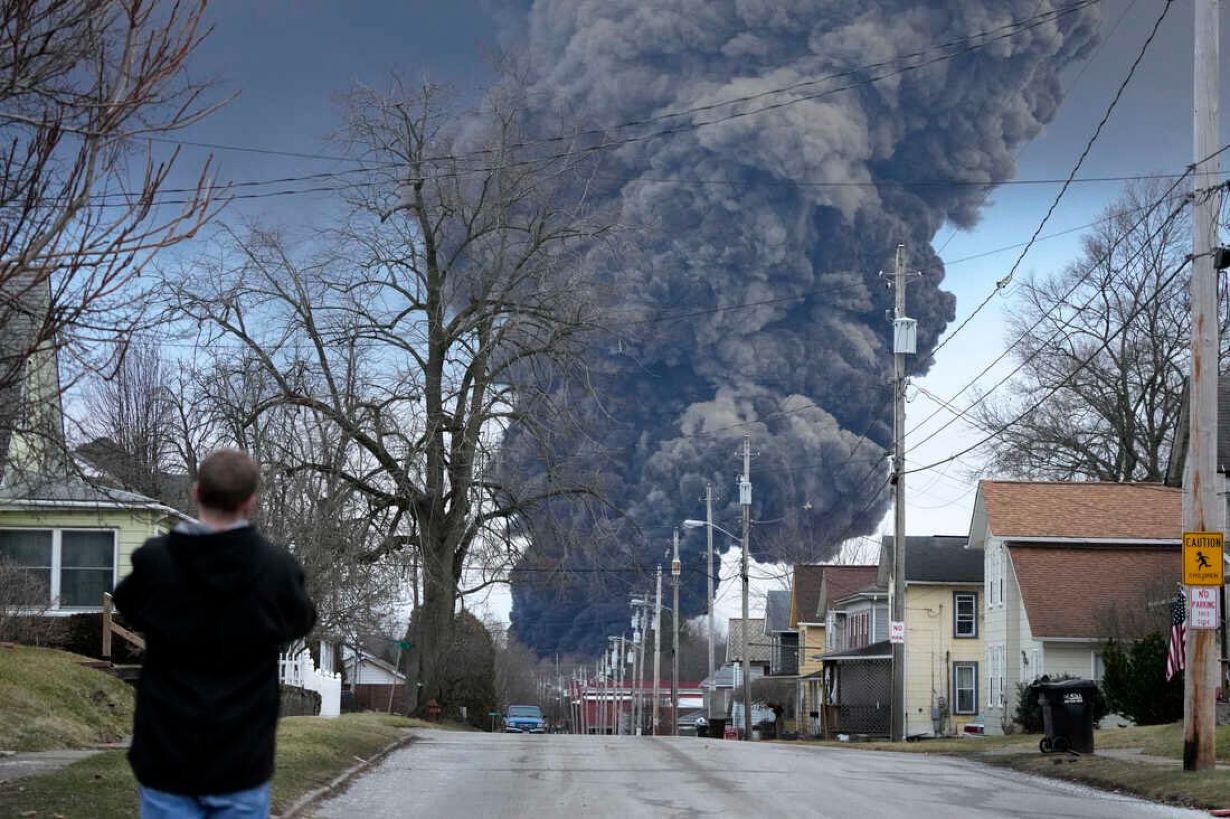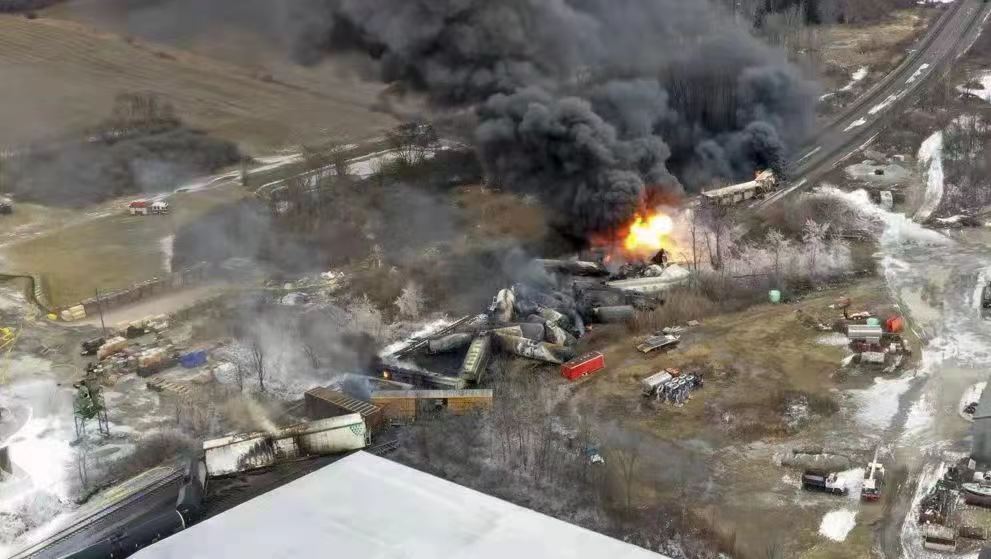China has mocked the United States for being concerned about a Chinese weather balloon while hiding the truth about a deadly chemical leak from a train derailment in East Palestine, Ohio.
On February 14, Hua Chunying, a spokesperson for the Chinese Foreign Ministry, posted on Twitter, “Apparently some in the US take a wandering civilian balloon as a big threat while the explosive train derailment and toxic chemical leak Not. #OhioChernobyl.”
Chinese officials and state media have harshly condemned the US for its “late response” time to the fiery accident in East Palestine, Ohio, on February 3.
On the other hand, US officials and national media outlets have extensively covered the story of the suspected spy balloon, which the US shot down off the coast of South Carolina on February 4.
The Ohio train derailment event on Chinese social media has sparked intense debate, with many calling it “a Chornobyl-level” disaster.
Apparently some in the US take a wandering civilian balloon as a big threat while the explosive train derailment and toxic chemical leak Not. #OhioChernobyl pic.twitter.com/uBEfG3HMXN
— Hua Chunying 华春莹 (@SpokespersonCHN) February 14, 2023
While blaming the US for not managing the accident properly, many Chinese commenters also speculated whether the US government was trying to purposefully withhold information and exaggerate the balloon event to distract national media attention.
Nevertheless, thousands of residents were forced to leave their houses due to the derailment resulting in a toxic chemical leak. China’s criticism of the Ohio train derailment coincides with growing concerns about the potential adverse effects on the town’s health and environment.
Authorities have lifted the evacuation order and declared it safe to return home, but some residents are skeptical, citing the deaths of birds and fish in nearby towns.
Chemicals from the crash have also been discovered in the Ohio River, which serves as a significant drinking water supply for millions of people in states like Ohio, Kentucky, and West Virginia.
So far, the Environmental Protection Agency stated that it has not yet found “levels of concern” for hazardous substances, but it will keep monitoring the area.

A Part Of China’s Propaganda?
According to the experts, the Chinese Foreign Ministry spokesperson’s latest remarks are part of a larger Chinese strategy that aims to portray the US response to the balloon as excessive and symptomatic of the country’s carelessness regarding pressing issues.
An editorial recently published in the People’s Daily, the newspaper of the Chinese Communist Party, claimed that the Biden administration’s handling of the balloon has revealed to the world how immature and reckless — even hysterical — the US has been in handling the matter.
The editorial noted that the United States should have handled the balloon case calmly and responsibly rather than allowing it to be hijacked by bitter domestic partisan politics because a conflict between the two countries would prove disastrous for the entire world.
The extensive US media coverage and discussion of the Chinese balloon already angered Chinese official media and Weibo users. Many users complained that the US was “hyping up the China threat” and making unfounded assertions.
Meanwhile, the 50-car train that derailed in rural Ohio while carrying dangerous chemicals is currently the topic of much discussion among certain Chinese social media users.
In fact, on February 14, four out of the top 20 “hot searches” on Weibo, China’s equivalent of Twitter, included videos or news blog posts on the accident.
Without providing any evidence, the Chinese netizens compared the Ohio tragedy to the 1986 Chornobyl nuclear disaster, which is widely regarded as one of history’s most noteworthy disasters.

Besides, after footage of a television journalist being handcuffed and imprisoned while reporting the derailment surfaced, questions regarding press freedom in the US began to appear on Weibo.
Global Times has extensively covered the issue and has published at least ten reports criticizing Washington for its sluggish and ambiguous response.
The Chinese state-run media site also published an article alleging that a key US agricultural production hub in Ohio, a major supplier of soybeans to China, may also be dealing with the repercussions of a serious chemical leak. It also discussed the rising concerns about food safety among Chinese customers.
Bloggers who spew anti-Western emotions may not accurately represent the opinion on the ground in China. They do, however, fit into a prevalent narrative on the site that does not miss an opportunity to mock America as an imperialist country that is dysfunctional, enslaved by greed, and rife with hypocrisy.










